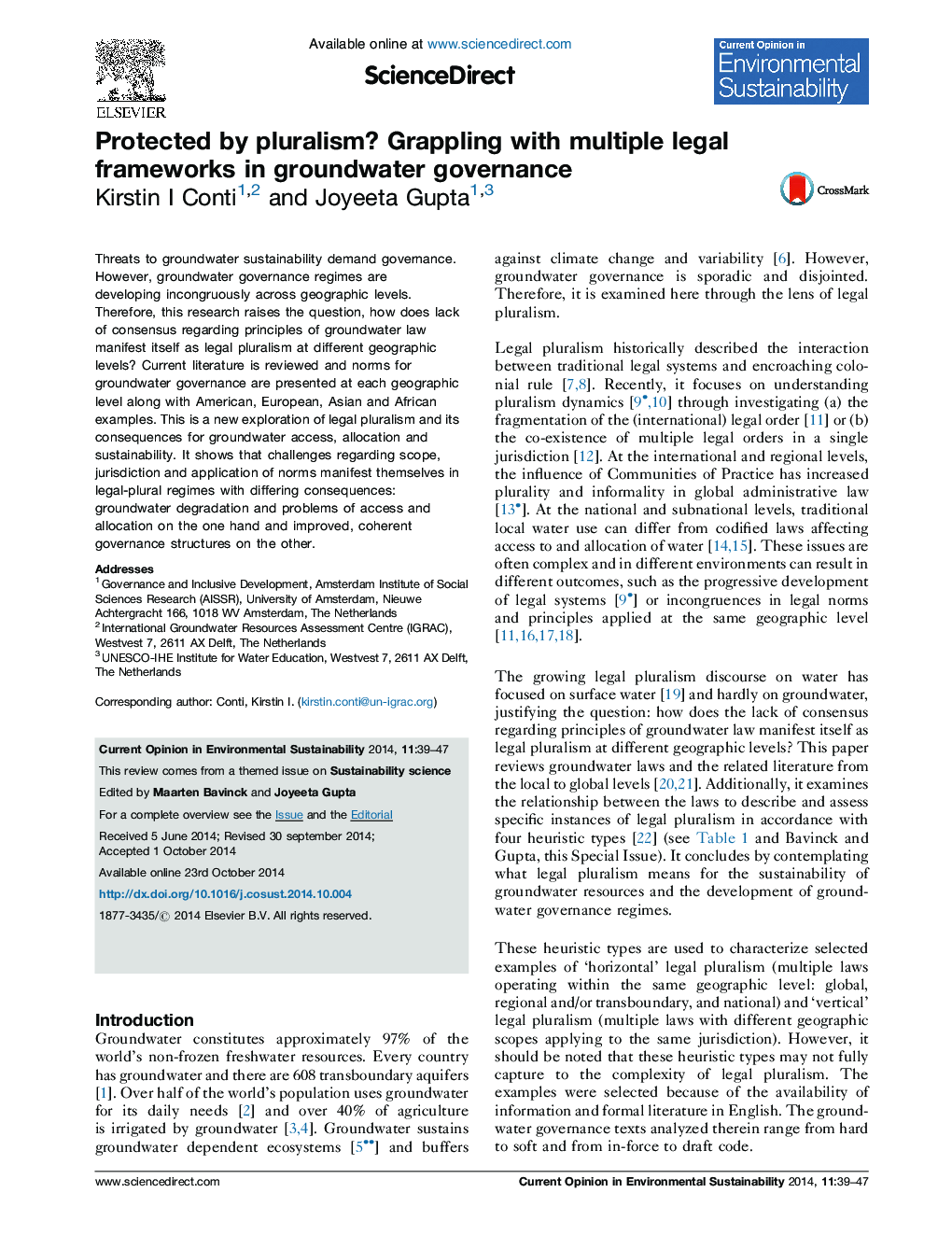| Article ID | Journal | Published Year | Pages | File Type |
|---|---|---|---|---|
| 1051339 | Current Opinion in Environmental Sustainability | 2014 | 9 Pages |
•Legal pluralism sometimes contributes to groundwater depletion or user conflicts.•In other instances pluralism can lead to improved, coherent governance structures.•Scope/jurisdiction issues are often indifferent or accommodating.•Sovereignty/access/allocation issues tend to compete.•Several norms are supported mutually in formal laws, but sometimes lack enforcement.
Threats to groundwater sustainability demand governance. However, groundwater governance regimes are developing incongruously across geographic levels. Therefore, this research raises the question, how does lack of consensus regarding principles of groundwater law manifest itself as legal pluralism at different geographic levels? Current literature is reviewed and norms for groundwater governance are presented at each geographic level along with American, European, Asian and African examples. This is a new exploration of legal pluralism and its consequences for groundwater access, allocation and sustainability. It shows that challenges regarding scope, jurisdiction and application of norms manifest themselves in legal-plural regimes with differing consequences: groundwater degradation and problems of access and allocation on the one hand and improved, coherent governance structures on the other.
